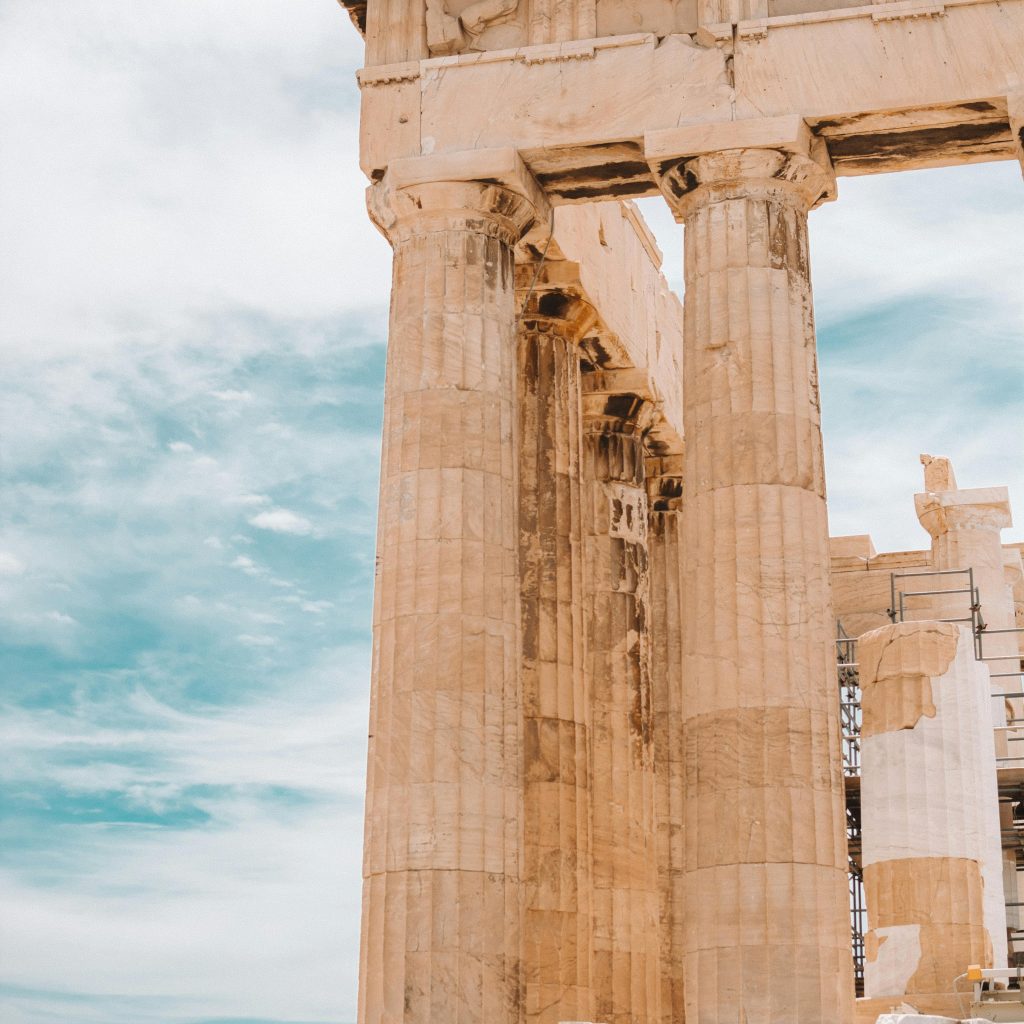
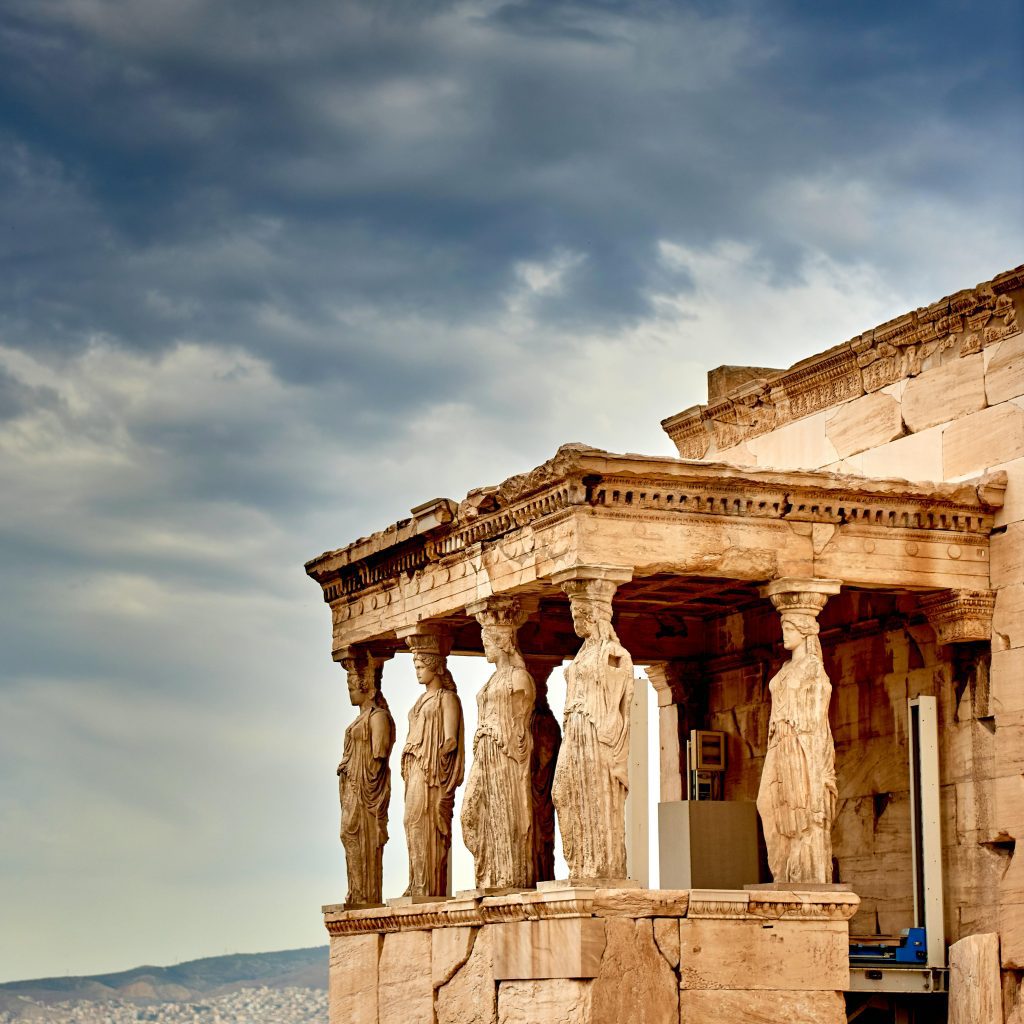
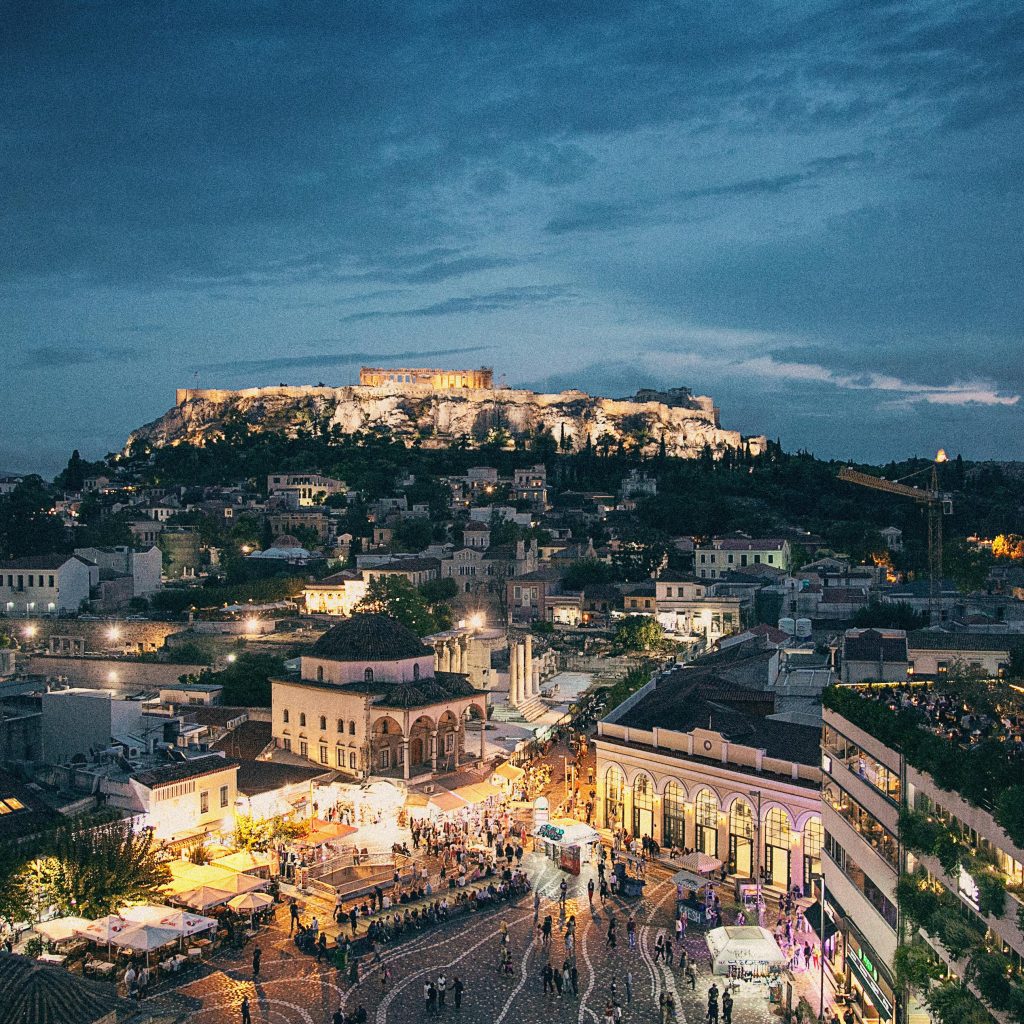
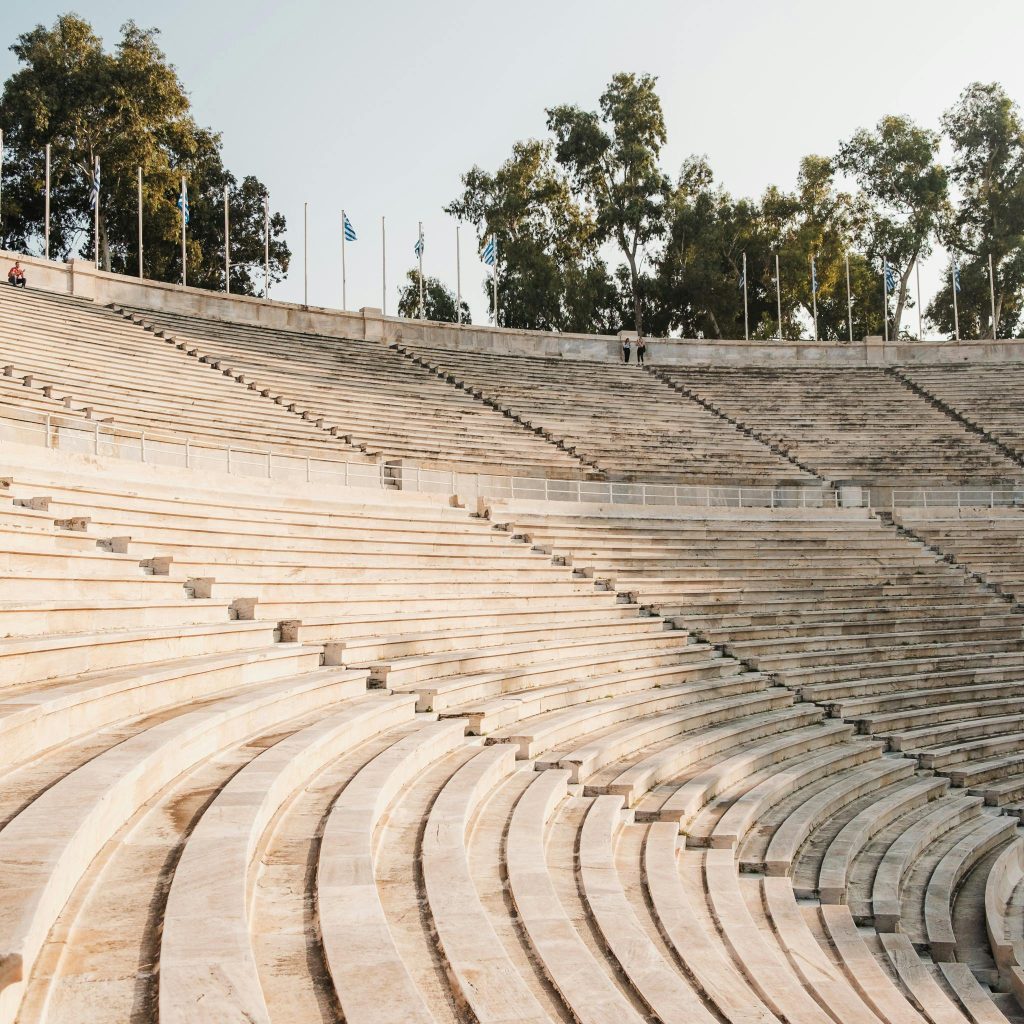
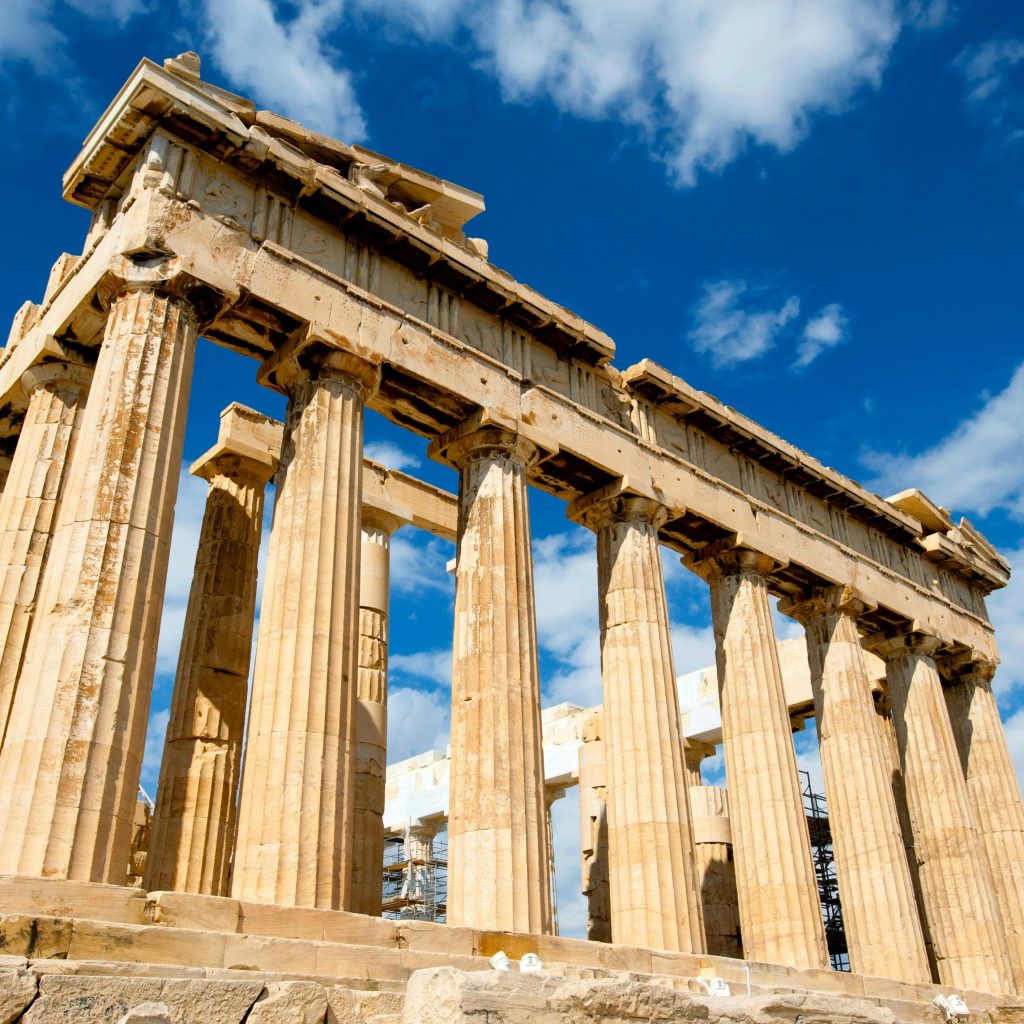
Upon arrival in Thessaloniki, your pilgrimage begins with visits to the city’s religious and historical landmarks. The Byzantine Acropolis offers insights into the city’s ancient fortifications and its importance as a Christian stronghold. The Basilica of the Immaculate Conception stands as a testament to Byzantine architecture and devotion. The Church of Saint Demetrius, dedicated to Thessaloniki’s patron saint, houses sacred relics and stunning mosaics, telling the story of early Christian martyrdom and perseverance. Walking through the Old City Walls provides a glimpse into the city’s defensive past and strategic significance. The Triumphal Arch of Galerius and the remnants of the Via Egnatia highlight the Roman influence on the city and its role as a key junction of the ancient world. A comprehensive city tour rounds off the day, offering a narrative of Thessaloniki’s evolution from a Byzantine hub to a modern metropolis, rich in culture and faith.
Journeying from Thessaloniki, you’ll reach Philippi, an area of immense biblical importance. Here, the Roman Forum stands as a relic of the city’s ancient marketplace, where Apostle Paul preached and established one of the first European Christian communities. The site of Lydia’s baptism, the first recorded baptism in Europe, is a serene spot for reflection on the spread of Christianity. Moving to Kavala, the modern port city that ancient Neapolis once stood, offers panoramic views and a connection to Paul’s missionary journeys, as it’s believed to be his landing place in Europe.
In Veria, you’ll encounter the Bema of Apostle Paul, a significant site where Paul is said to have preached to the Bereans. This visit connects pilgrims with the tangible footsteps of Paul’s missionary work. The journey continues to the breathtaking Meteora, where nature and spirituality merge in harmony. The towering rock formations crowned with Eastern Orthodox monasteries are not only a feast for the eyes but also a sanctuary for the soul, inviting pilgrims into a world where monastic life has thrived for centuries.
Dedicate a full day to exploring the Meteora monasteries, each telling its own story of faith, art, and survival. These monasteries, accessible by narrow staircases cut into the rock, hold priceless icons, manuscripts, and frescoes, embodying the Orthodox Christian spirit. The awe-inspiring landscapes and the monastic silence provide a profound backdrop for prayer and contemplation, making Meteora a highlight of spiritual journey in Greece.
The pilgrimage to Delphi, nestled on the slopes of Mount Parnassus, is a journey back to the roots of ancient Greek civilization. The Temple of Apollo, once the home of the famous oracle, connects the ancient pagan world with the Christian ethos, highlighting the search for divine truth. The Archaeological Museum of Delphi houses significant artifacts, including the bronze Charioteer, a symbol of ancient Greek artistry and spirituality. The omphalos, or “navel” stone, symbolizes Delphi’s ancient role as the center of the world, offering a unique perspective on the interconnectedness of human belief systems.
This day starts in Athens with visits to iconic sites where ancient history and Christian tradition intersect. The Acropolis and the Mars Hill (Areopagus) provide a setting for reflecting on Apostle Paul’s sermon to the Athenians. The journey continues to Corinth, a city of significant biblical relevance. Here, the ruins of the Gentile Church, the Fountain of Peirene, and the Temple of Apollo echo the early Christian community’s challenges and triumphs. The day concludes as you reach Kusadasi, preparing for the exploration of Ephesus, retracing the steps of Paul and early Christians.
Ephesus is a treasure trove of Christian heritage. The House of the Virgin Mary is a place of pilgrimage, believed to be where Mary spent her last days. Ephesus’ ancient streets, lined with the ruins of the Magnesian Gate, the Agora, the Odeon, and the Library of Celsus, transport pilgrims back to the days of early Christianity. The Great Theatre where Paul once preached, the Thermal Baths of Scholastica, Trajan’s Fountain, Hadrian’s Temple, and the Prytaneum offer a comprehensive glimpse into the daily life and spiritual struggles of the early Christian community. This historical backdrop emphasizes the perseverance and faith of the early believers amidst a predominantly pagan society.
The serene journey to Patmos offers an opportunity to step into a significant chapter of Christian history. Saint John’s Monastery, dedicated to the apostle John, houses relics and manuscripts that span centuries of Christian devotion. The highlight is the Grotto of the Apocalypse, a sacred cave where Saint John is believed to have received the visions that form the Book of Revelation. This site provides a profound sense of connection to the mystical aspects of Christian faith, offering a space for meditation on the end times and the eternal hope found in John’s prophetic writings.
Arriving in Crete, you’ll visit Heraklion and the Palace of Knossos, stepping into the world of Greek mythology and the legendary Minotaur’s Labyrinth. This visit, while rooted in pre-Christian times, offers insights into the cultural and religious context that Christianity emerged from within the Greek world. The Archaeological Museum in Heraklion showcases Minoan civilization artifacts, further enriching your understanding of the island’s ancient history. This day bridges the journey from ancient myths to Christian truths, reflecting on the transformation of society and religious thought.
Your pilgrimage culminates in Athens, revisiting the legendary Acropolis to marvel at the Parthenon and the Temple of Athena Nike, symbols of ancient Greek achievements in art and architecture. The Winged Victory statue stands as a testament to the Greek ideals of beauty and victory. Exploring the Plaka area provides a leisurely ending to the pilgrimage, with its neoclassical buildings and bustling streets. A final visit to the Areopagus (Mars Hill) offers a moment to reflect on Apostle Paul’s efforts to communicate the Christian gospel to a philosophically sophisticated audience. The “Men of Athens” speech resonates here, reminding pilgrims of the ongoing dialogue between faith and reason.